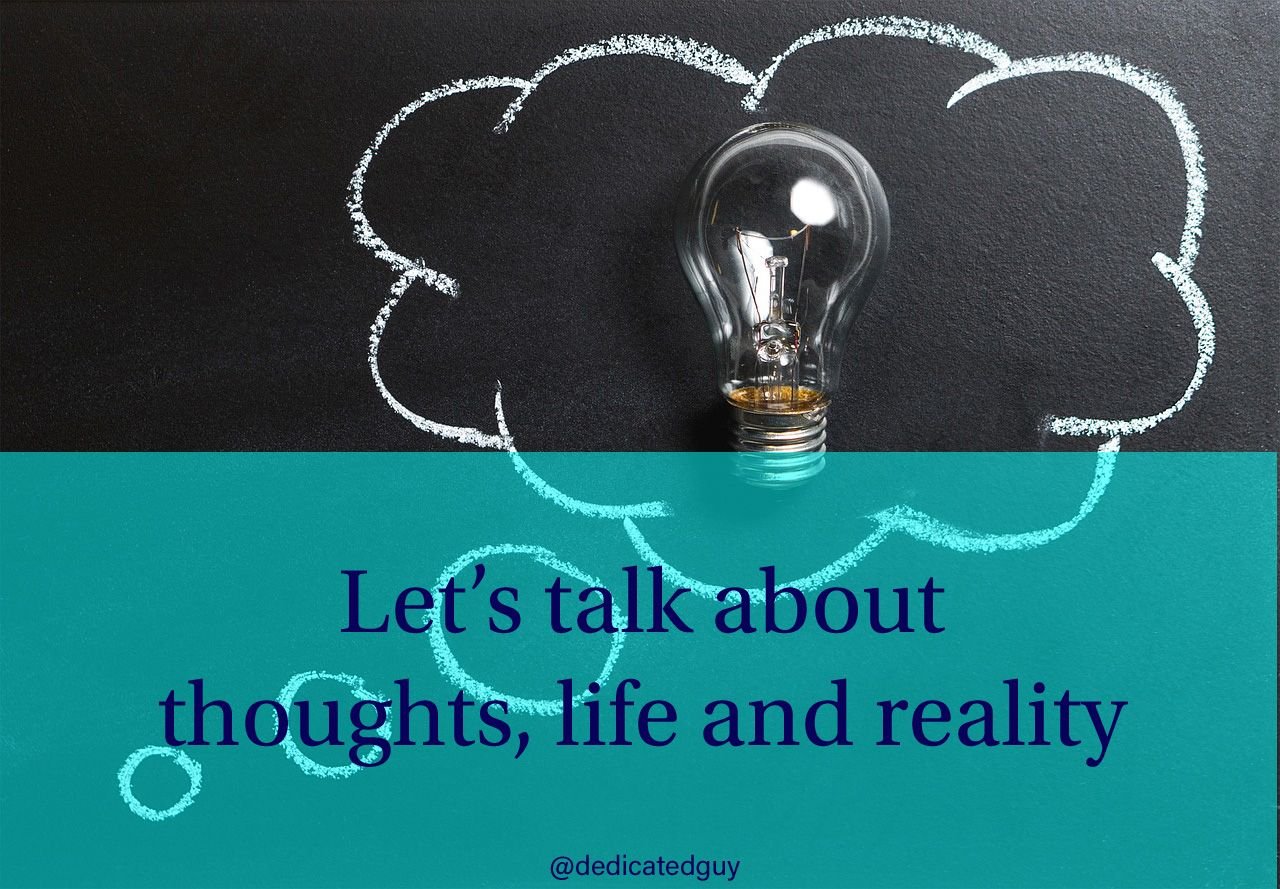

Genes make us who we are
First of all we have our genes, that work as kind of parameter for our possibilities. Genes are an inheritance that can not be modified, but there is something about which we do have power: our thoughts and therefore, the way we think about what happens to us.
Genes, are at the base of all our virtues, but also our shortcomings and defects. For practical purposes, they work as a set of guidelines or instructions that predispose us to develop one way or another.
Genes are permanently shaped and forged by the environment. Within it, we have the habits in which we are immersed, the type and quality of parenting we have received, as well as the personality and the sociability of our own parents and family, that are of great influence for us.

The school we attend, our classmates and childhood friends, each of the different experiences, both good and bad, that we had to live as we grew up, interact with our genes and contribute their bit to help us become who we finally are.
How we feel, how we behave and relate to the world, depends on the final result of all these different elements that are mixed together.
Of course, there is not much we can do about these factors. Our biological parents cannot be changed, this means we cannot do anything to improve them in order to improve ourselves indirectly, if that is our desire.
The same applies to the genes that were assigned to us in the lottery of life and to each fact that we live during our childhood and teenage years, the time machine that allows us to travel to the past to make the changes that are convenient for us has not been invented and it seems that it will not be invented either.
But there are other variables that we have more control with as mentioned before, such as our way thinking and thoughts that play a crucial role in the way we see and interpret the world.

Confusing our thoughts and reality
We need to be careful with not making the mistake of believing that our thoughts are reality itself, and it is easy to fall into such a mistake for a couple of reasons.
Thoughts are invisible. They can not be seen, they can not be touched and many times we are not even aware that we are thinking. But we do it, in fact, we think all the time, and although we do not realize it, everything that goes through our mind has a direct effect on what we experience, the correspondent reaction, and therefore, how we act.
It can be a bit frightening to realize that we are the only ones living the experience that we are living, that what we are calling our experience doesn't exist in any real sense, except for an instant inside our minds. So, too, it can be unsettling to consider that there really is no shared experience going on whatsoever. | Source

We must also bear in mind that our thoughts happen only within our own mind, therefore, we can not compare them with the thoughts of others. Being isolated, it is easy for them to end up becoming our most absolute truth.
Everything we think rises in our reality without us noticing, we end up mirroring what happens inside our mind with what happens outside.
But one thing is what we think happens, and quite another is what really happens. And the irony of this whole thing is that what we think happens is the only thing that really matters when we have to make a decision. From this idea, let's imagine a couple of situations.
The plane example
We are flying in an airplane at 20,000 meters high when, suddenly, the plane enters a zone of turbulence. As we do not have much knowledge about planes, the first thing we think is: "My God, the plane is going to fall and we will all die. Oh no I'm going to die! "
Under that thought (that does not need to be adjusted to what’s actually happening) it is highly probable that fear takes control of us. We will experience tachycardia, possibly an uncontrollable anguish and the feeling that we are going to faint from one moment to the next. In summary, the experience will be extremely unpleasant.
Psychology researchers found that when someone tries to force a thought away, they actually think about it more than if they hadn't tried to force it away. | Source
On the other hand, if in the same circumstances we think: "Well, we enter turbulence. I hope it happens soon so they can then serve dinner ", it would be very obvious that both our emotions and the correspondent physiological response will be very different.
The date example

Another case: A woman is about to meet in a coffee shop with a man she has just met on a social network. The man in question seems handsome, and the times they exchanged messages he was educated and intelligent, just as she likes them. A good catch, without a doubt.
However, 15 minutes goes by after she occupies a table, but there is no news or traces of him. Then she thinks: "I should have imagined it, he did not like me, and clearly he did not dare come when I invited him so we could see each other."
Another reaction could be: "What a guy, after all he turned out to be someone with no consideration of other people’s time. But who does he think he is to make me wait like this? "
In the first case, the woman will feel, without doubt, depressed, hopeless, or both. She may even cry for several days, and her thoughts will continue for a long time in the same direction: "I'm horrible, I'm not worth anything as a person, nobody will ever love me." In the second case, she will feel upset, angry, and probably have outbursts when talking to other people.
But the certain thing is, that the woman having the date, before the delay of its potential partner, could also think: "It is a fact: he is going to arrive late. Maybe it would have been better to have this date in a coffee shop closer to his house, to get here he has to cross half of the city." This is what lawyers call "presumption of innocence". In other words, it is desirable that we always try to direct our thoughts under the premise that no one is guilty until proven otherwise.

Conclusion

There is a common fact among all of these examples: the person is thinking. And what the person is thinking may or may not agree with reality.
The instinctive response to control a scary thought by holding it in or concealing it, typically backfires and makes things feel worse. Persistence creates resistance; the more you try to push thoughts out, the bigger they get. | Source
What we are thinking is just that, an idea coming from our mind. But reality is something that happens beyond that. And this is of vital importance, because what we think can determine how we feel and what we will do as a result.
References
psychologytoday - why our thoughts aren't real
goodtherapy - disturbing thoughts
psychologytoday being afraid of thoughts
psychologytoday - coping with scary thoughts
Images sources
All images are from pixabay

If these titles sound interesting to you, I assure you the articles will be even better!

How can suggestions affect our lives?
Meet Lympo: the blockchain project that rewards you for leading a healthy and active life.
Why do some people tend to sabotage themselves?
Meet Crowd Machine: blockchain has just arrived to the cloud computing industry!
Let’s talk about emotional shocks!
Can emotions have an effect on our reasoning?
